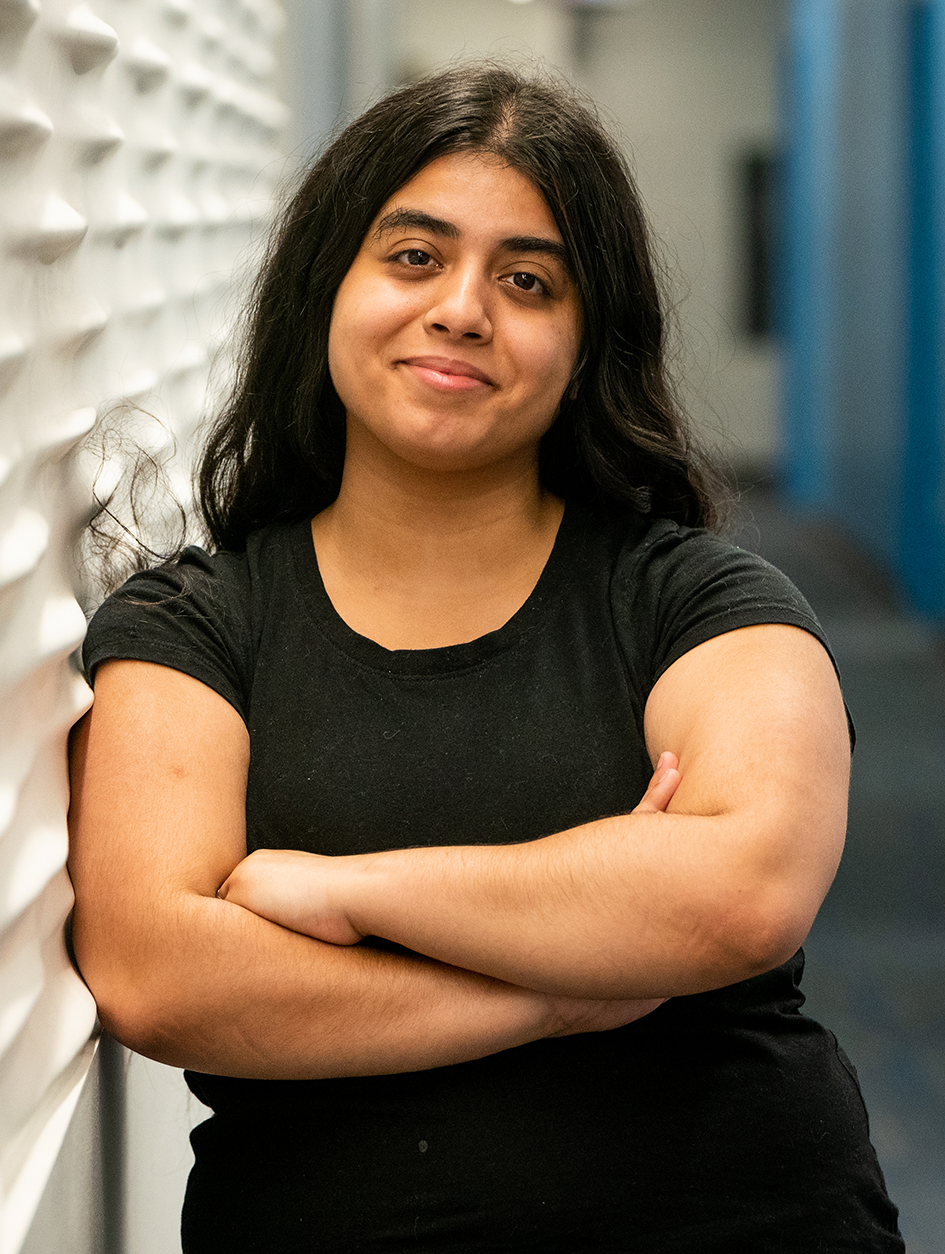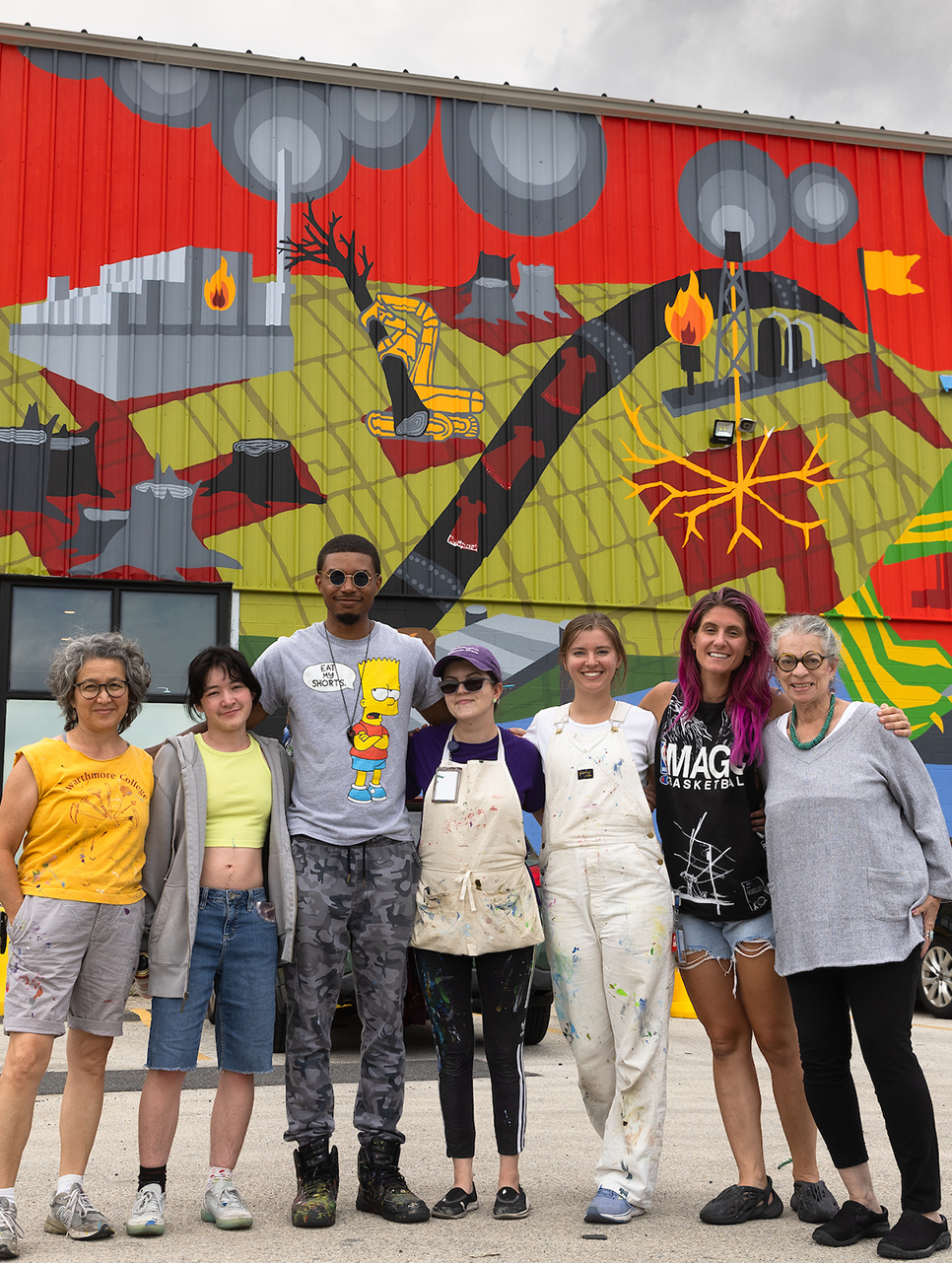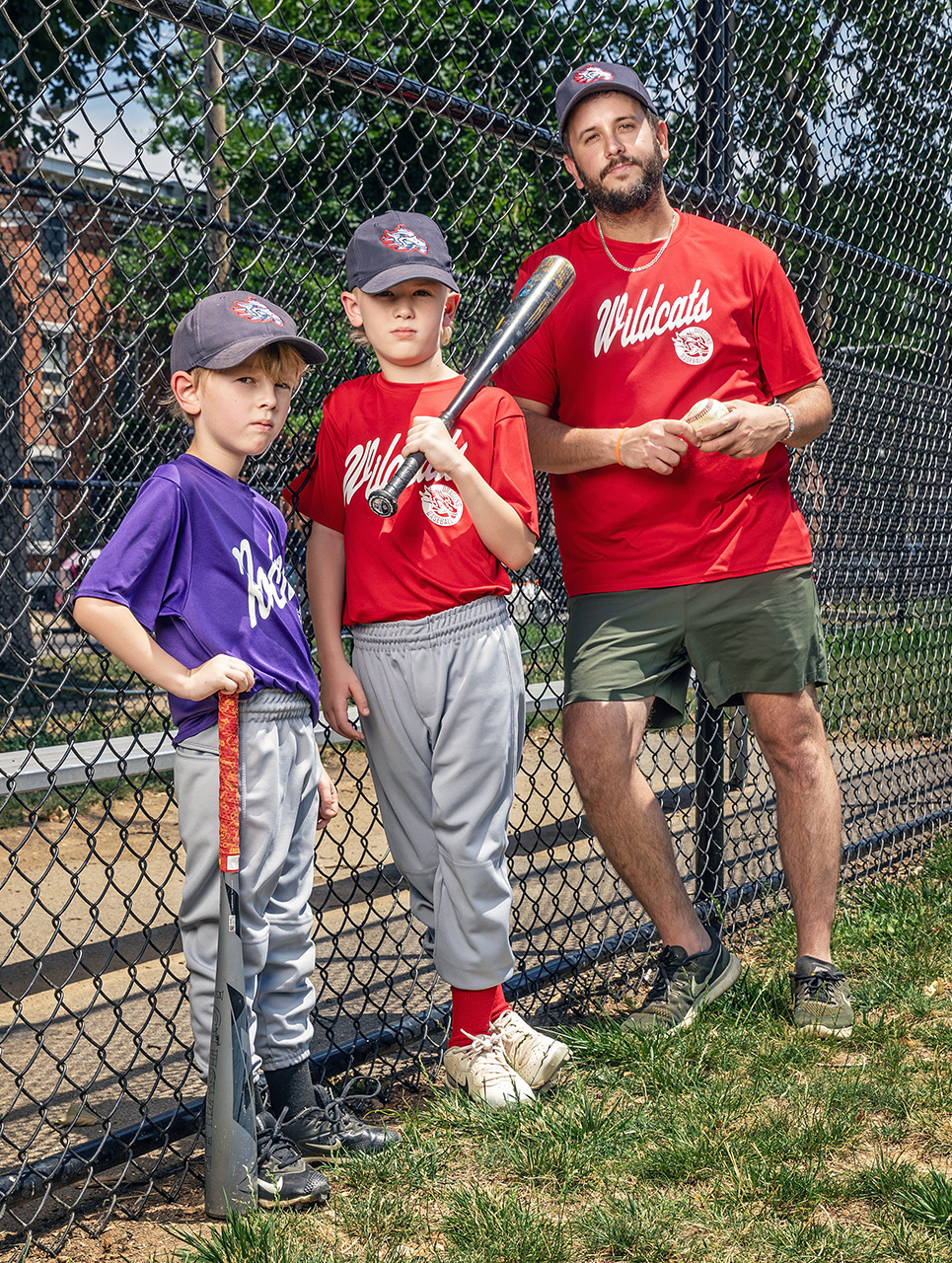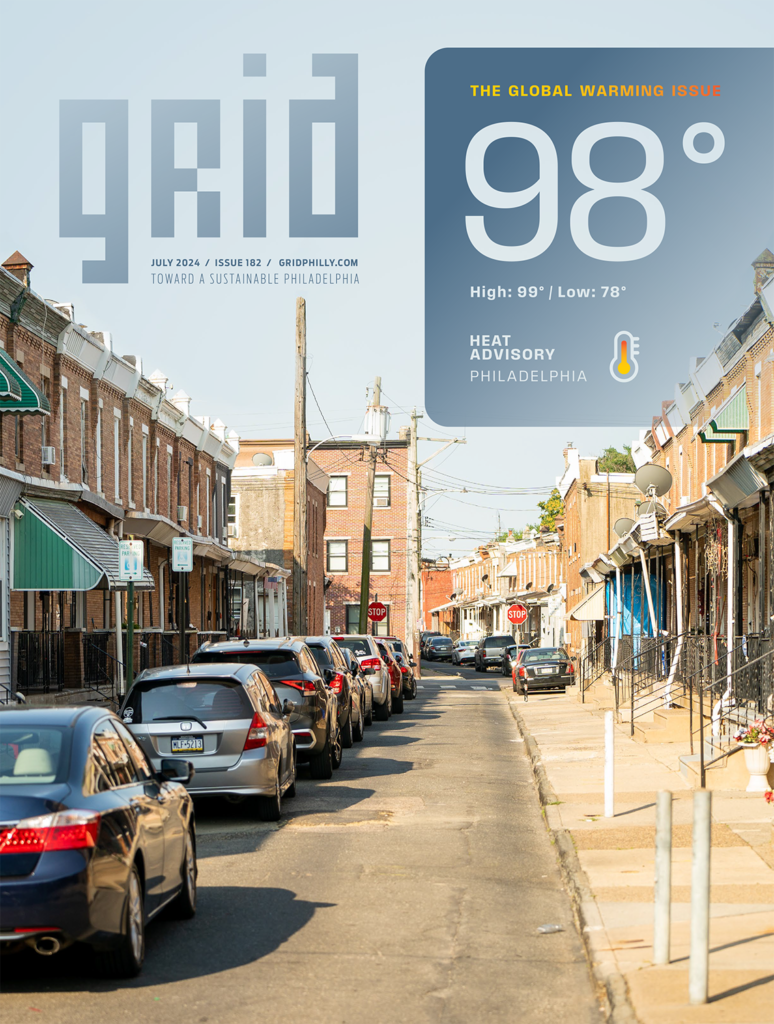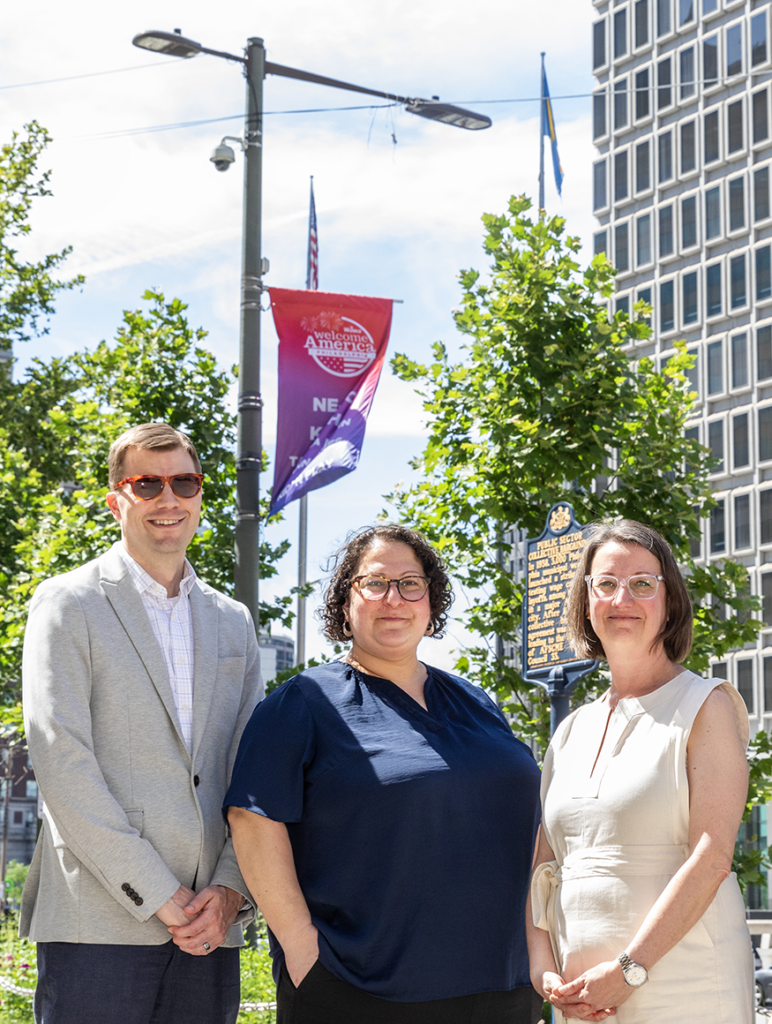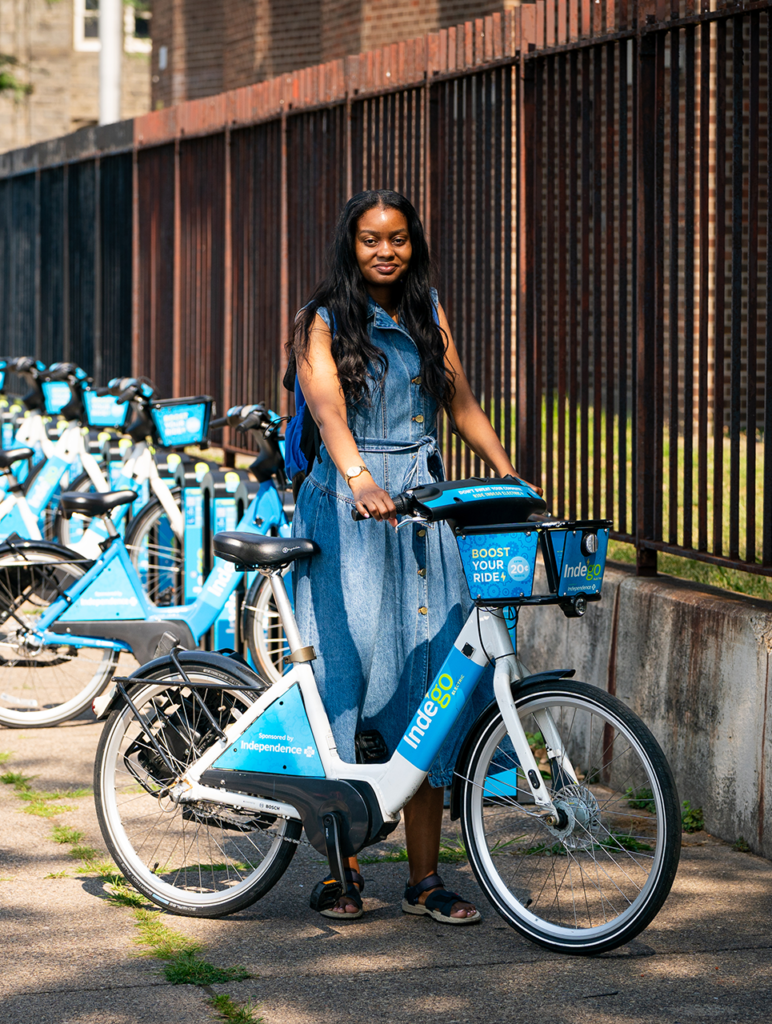Natalie Sanchez had no inkling that the summer job she’d heard about through her high school, Philadelphia Virtual Academy, would launch her toward a new life. In 2021, Sanchez, then 17, worked as an intern at PECO Energy Company, a position she landed through the nonprofit Philadelphia Youth Network (PYN).
“We [interns] worked 20 hours a week,” Sanchez says. “My projects included developing a slideshow to explain the power factor, which relates to energy efficiency on your PECO bill. We also learned skills like networking, collaborating and saving money,” says Sanchez, who, like other interns, earned $11 an hour to start.
PECO proved an open-sesame for Sanchez. The company extended her six-week internship and, in time, created a paid, part-time position for her. Sanchez now works there 26 hours a week. “I’m taking a gap year, then I’m going to college to study computer science,” says Sanchez, now 20. “No one in my family attended college before.”
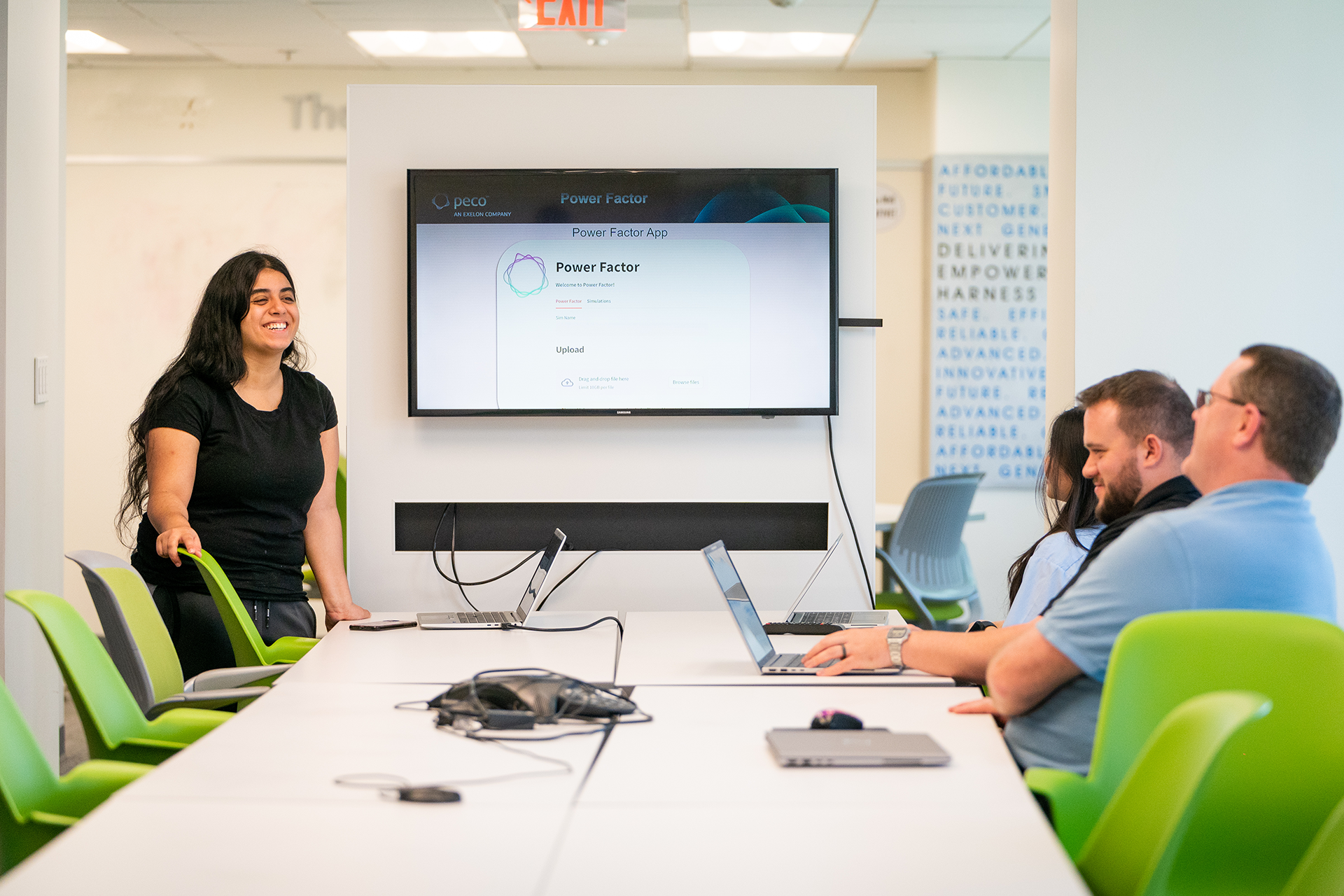
Sanchez’s path from summer internship to year-round work mirrors the transition of the organization that made the opportunity possible. Founded in 1999, PYN managed city-funded summer jobs for youth for more than 20 years — now, they’re shifting focus to offer paid work experiences year round for Philadelphians ages 14 to 24.
“Consistent exposure to the work environment benefits young people most,” says Wendy-Anne Roberts-Johnson, president and CEO of PYN. “We know that youth need more exposure over a longer period to support their career exploration and planning.”
PYN plans to offer nearly 1,000 paid positions at local businesses, nonprofits and government agencies in 2024, which young people can look through on PYN’s opportunity locator on their website, Roberts-Johnson says. “It’s the best way for young people to test out different areas of employment where they might want to focus their education.” A teen who’s thinking about becoming a veterinarian might sign up for an internship with a veterinary practice, Roberts-Johnson says. The young person sees firsthand what’s involved, the education required and the cost, then decides to pursue or discard that choice. They may end up exploring a related career, Roberts-Johnson says.
I’m taking a gap year, then I’m going to college to study computer science. No one in my family attended college before.”
— Natalie Sanchez, Philadelphia Youth Network participant
Some internships will run for just six weeks, but, in alignment with their new focus, PYN seeks youth employers willing to provide longer internships. For PYN partners like the West Powelton Steppers and Drum Squad, under the aegis of Musicopia, the year-round model jives with their current calendar. “We’ve always met Tuesdays, Wednesdays and Thursdays from 5 p.m. to 8 p.m. throughout the year,” says Antoine Mapp, head of the award-winning steppers and drum squad, some of whose members perform in the 76ers halftime shows. “[During the school year] if the kids arrive and don’t have their homework done, they have to do that first,” says Mapp, who has guest speakers talk about topics like peer pressure and craftspeople who discuss carpentry and plumbing. All participants earn $200 a month.
But expanding the 12-month format across many organizations presents challenges, too. “It will require more funding as we transition to a year-round schedule,” Roberts-Johnson says.
PYN’s small specialized 12-month program, Unlock Potential (UP), shows the promise of collaborations to help fund longer-term work experiences. In 2022, PYN joined with Responsible Business Initiatives for Justice (RBIJ) to start the Philadelphia chapter of UP. Funded by the Walmart Foundation and NEO Philanthropies, major companies like Sam’s Club, Delta Airlines and AutoZone provide employment for youth ages 16 to 24 who’ve had a brush with the criminal legal system. “It’s a powerful way to create an alternative for young people most at risk,” Roberts-Johnson says. UP has a more rigorous interview process and fast-tracks participants to full-time positions, she says. PYN has filled all the UP positions for this year, but hopes to offer 300 slots in 2025, Roberts-Johnson says.
There are still slots open for PYN’s other paid internships, run through its WorkReady programs, which has two tracks: WorkReady BOOST (Blueprint for Occupational Opportunities, Success and Training) and WorkReady VIP (Violence Intervention and Prevention). Both include a 120-hour paid work experience and in-class career development. Each intern has a coach who helps them resolve issues like obtaining work permits and proof of Philadelphia residency. Coaches may also communicate with supervisors and help students find other work if their interests change, PYN staff says. WorkReady BOOST, funded by a grant from the Pennsylvania Department of Community and Economic Development, provides jobs, financial literacy and on-site training to equip youth for success, according to PYN.
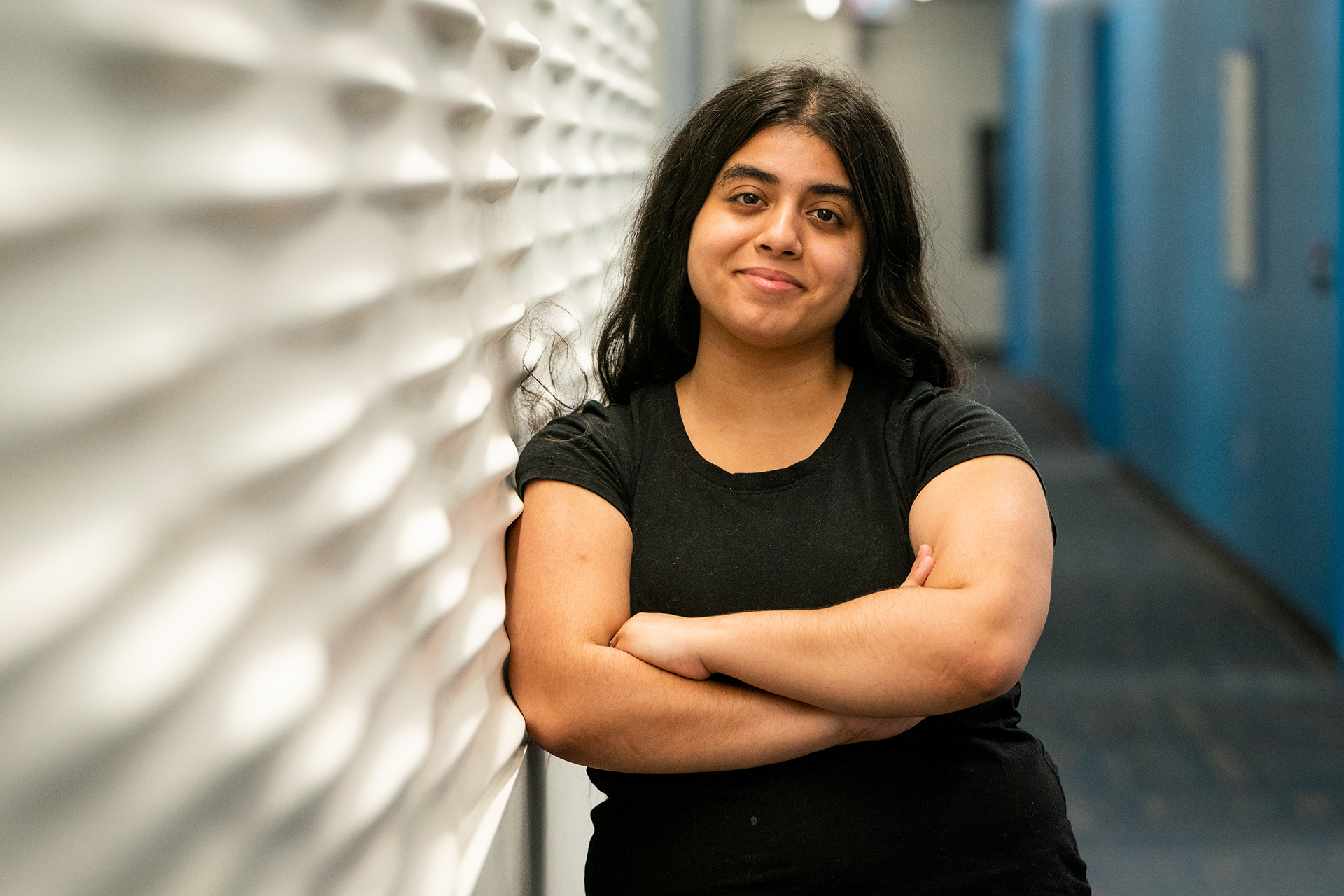
WorkReady VIP serves students ages 14 to 24 from zip codes with the highest rates of gun violence, as reported by the Philadelphia Police Department and other City agencies.
Funded by PCCD, WorkReady VIP includes a paid internship, social emotional learning and conflict-resolution strategies. Both programs serve 66.6% youth of color, according to PYN.
WorkReady does more than slot students into jobs, Roberts-Johnson says. “We look at whether the young person likes the work and feels valued,” she says. “We want to give students a gold-standard experience.”
Ebony Joyner, unit leader for PYN partner Youth Outreach Adolescent Community Awareness Program (YOACAP), says that sometimes an internship provides an important respite for young people.
“I had just gotten off probation,” says YOACAP intern Tyganea Watson, 17, who lost her mother and a sister early in childhood. Watson began with YOACAP’s WorkReady summer program funded by PYN in 2022. She is now in one of YOACAP’s WorkReady VIP’s year-round cohort. “I assisted the teacher, using games like Jeopardy and hangman to help kids learn,” says Watson, who found she could let down her guard at the West Philly site where she interned. “I also got exposure to schools like Drexel and Temple,” says Watson, who’s now set her sights on college. “I want to study psychology.”
Though PYN hasn’t measured attrition and the percentage of students who seek higher education after an internship, one immediate effect seems clear. According to a study done by Sara Heller, an assistant professor of criminology at the University of Pennsylvania School of Arts and Sciences, arrests for “violence committed by disadvantaged urban youth” dropped by up to 43% among young people with summer jobs.
Though challenges lie ahead, the rewards far outweigh them, according to Roberts-Johnson. “My greatest joy is when a student tells me, ‘You know, they let me do XYZ?’ with excitement in their voice.”
Meanwhile, PYN interns step into larger lives. “I’m so grateful that I had this opportunity,” Sanchez says.


